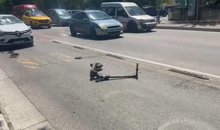
 Flash News
Flash News
Drenova prison police officer arrested for bringing drugs and illegal items into cell
Lavrov: NATO is risking self-destruction with new military budget
Kurti and Vučić "face off" tomorrow in Skopje
Construction worker dies after falling from scaffolding in Berat
The prosecution sends two Korça Municipality officials to trial
REL analysis: Baltic states with more power in the EU, while enlargement remains uncertain

After several delays and setbacks, including fewer women than before, European Commission President Ursula von der Leyen on September 17 presented her new European Commission team for the next five years.
Let's put it this way: The big winners are the Baltic states and Poland, which take strong positions; other central and eastern states, not so much. Let's see what will happen with the enlargement of the EU.
It is clear that the Baltic countries are close to Von der Leyen. Of course, we already knew that the former prime minister of Estonia, Kaja Kallas, is the EU's foreign policy chief. Latvian veteran Valdis Dombrovskis took on the heavyweight economy portfolio despite persistent rumors that he would be dealing with expansion in the coming years.
Former Lithuanian Prime Minister Andrius Kubilius was chosen for the newly created defense portfolio. This role may be empty if there is no EU defense funding. Brussels has shown interest in boosting the continent's defense industry, especially with the ongoing war in Ukraine, but the question is whether member states are really interested in it. There are many national champions in this field, but few European ones, and it is doubtful whether this will change in the coming years. Finally, Piotr Serafim, the right-hand man of Polish Prime Minister Donald Tusk, will have the budget in hand. So, so far, it's pretty impressive.
But then, it's clearly a Western trend on the block. Spain will be responsible for the EU's internal market, France for industrial strategy, Ireland for justice, Luxembourg for the lucrative agriculture portfolio and Italy for cohesion policy – a major source of EU cash where money is transferred from the most developed regions. wealth to the poorest of the club. Austria, which is leaning more and more to the right, took on migration issues – a true sign of the times.
Of course, the Romanian candidate, Roxana Minzatu, is one of the six executive vice presidents. This is important, but its domain is "people, skills and preparations", a rather vague concept. Von der Leyen stressed that she will be responsible for education and social rights – issues that mainly fall within the competences of national governments, not Brussels.
The Bulgarian candidate, Ekaterina Zaharieva, will deal with research and innovation – another area in which the EU is quite shy, and Hungary's Oliver Varhelyi will deal with animal health and welfare, something that has become more important on the scene. European, especially after COVID, but which is still not very strong. Both are rumored to be at risk of being sacked, as the European Parliament will soon start hearing candidates and is likely to eliminate at least a few.
Slovakia took over trade in an era of increased protectionism, the Czech Republic has an "international partnership" that no one knows what it means, and Croatia is responsible for the Southern Neighborhood - in other words, the countries in North Africa that do not may be members of the EU, but that the bloc wants to reach an agreement to prevent immigration to the club.
What about expansion? This area affects many in the Western Balkans, as well as the candidate countries in the east such as Georgia, Moldova and Ukraine. Enlargement was supposed to be one of the priorities of this composition of the European Commission. That went to Slovenia and Marta Kosi, the commission's only yet-to-be-confirmed candidate from its capital, as the opposition in Ljubljana postponed the issue as they are angry that the Slovenian front-runner, Tomaz Vesel, defected to Von der Leyen. as she sought more women on her team.
This is not a strong endorsement of enlargement as a policy, and I understand that Ukraine and Moldova were hoping for someone with a slightly higher profile and preferably from the friendlier Baltic states. It will also be responsible for the eastern neighborhood, which means Azerbaijan, Armenia and Belarus. The question is how much time will be left for this trio.
Coming from the former Yugoslavia, it seems clear that Marta Kos will focus on the Western Balkans.
And in a way, this makes perfect sense as many of the countries there are currently more advanced than Ukraine and Moldova on their way to the EU and they have felt a bit sidelined by Brussels in recent years. She is likely to be less controversial than the current Hungarian enlargement commissioner, Oliver Varhelyi, who has clearly put a very Hungarian stamp on the role. But, again, it seems that expansion is not at the top of the agenda in Brussels for the coming years./ REL
Latest news



Second hearing on the protected areas law, Zhupa: Unconstitutional and dangerous
2025-06-30 22:18:46



Israel-Iran conflict, Bushati: Albanians should be concerned
2025-06-30 21:32:42

Fuga: Journalism in Albania today in severe crisis
2025-06-30 21:07:11
"There is no room for panic"/ Moore: Serbia does not dare to attack Kosovo!
2025-06-30 20:49:53

Temperatures above 40 degrees, France closes nuclear plants and schools
2025-06-30 20:28:42
Lavrov: NATO is risking self-destruction with new military budget
2025-06-30 20:13:54
Turkey against the "Bektashi state" in Albania: Give up this idea!
2025-06-30 20:03:24

Accused of sexual abuse, producer Diddy awaits court decision
2025-06-30 19:40:44



Kurti and Vučić "face off" tomorrow in Skopje
2025-06-30 18:44:12
Tourism: new season, old problems
2025-06-30 18:27:23


Construction worker dies after falling from scaffolding in Berat
2025-06-30 17:51:44




Almost free housing: East Germany against depopulation
2025-06-30 16:43:06

Hamas says nearly 60 people killed in Gaza as Trump calls for ceasefire
2025-06-30 16:14:15
Drownings on beaches/ Expert Softa: Negligence and incompetence by institutions!
2025-06-30 16:00:03


European ports are overloaded due to Trump tariffs
2025-06-30 15:30:44
The prosecution sends two Korça Municipality officials to trial
2025-06-30 15:19:54

Lezha/ Police impose 3165 administrative measures, handcuff 19 drivers
2025-06-30 14:55:04
Young people leave Albania in search of a more sustainable future
2025-06-30 14:47:52
Record-breaking summer, health threats and preventive measures
2025-06-30 14:36:19


Constitution of the Parliament, Osmani invites political leaders to a meeting
2025-06-30 14:07:54

Heat wave 'invades' Europe, Spain records temperatures up to 46 degrees Celsius
2025-06-30 13:42:02
Accident in Vlora, car hits 2 tourists
2025-06-30 13:32:16

Kurti confirms participation in today's official dinner in Skopje
2025-06-30 13:03:27

Fight between 4 minors in Kosovo, one of them injured with a knife
2025-06-30 12:38:45

Report: Teenage girls the loneliest in the world
2025-06-30 12:20:40
Commissioner Kos and Balkan leaders meet in Skopje on Growth Plan
2025-06-30 12:07:59
Wanted by Italy, member of a criminal organization captured in Fier
2025-06-30 11:55:53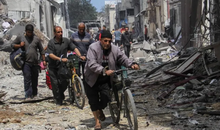
Hundreds of families displaced by wave of Israeli airstrikes in Gaza
2025-06-30 11:45:17

Zenel Beshi: The criminal who even 50 convictions won't move from Britain
2025-06-30 11:23:19
A new variant of Covid will circulate during the summer, here are the symptoms
2025-06-30 11:14:58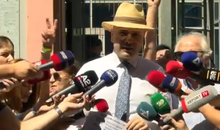
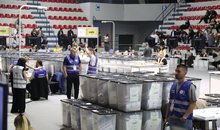
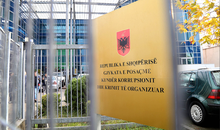
"Partizani" case, trial postponed to July 21 at the Special Court
2025-06-30 10:41:05
Uncontrolled desire to steal, what is kleptomania, why is it caused
2025-06-30 10:30:08
Requested change of security measure, hearing for Malltez postponed to July 7
2025-06-30 10:24:32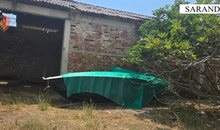
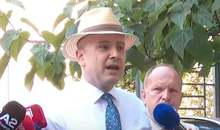

Output per working hour in Albania 35% lower than the regional average
2025-06-30 09:54:35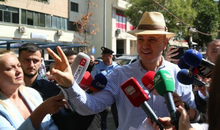

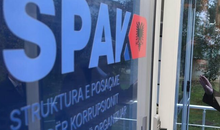
The trial for the "Partizani" file begins today
2025-06-30 09:27:57
22 fires in the last 24 hours in the country, 2 still active
2025-06-30 09:21:28
How is the media controlled? The 'Rama' case and government propaganda
2025-06-30 09:13:36
German top diplomat: Putin wants Ukraine to capitulate
2025-06-30 09:00:07
Foreign exchange, how much foreign currencies are sold and bought today
2025-06-30 08:44:38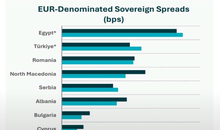
Chart/ Sovereign risk for Albania from international markets drops significantly
2025-06-30 08:26:38
Horoscope, what do the stars have in store for you?
2025-06-30 08:11:44
Clear weather and passing clouds, here is the forecast for this Monday
2025-06-30 07:59:32
Morning Post/ In 2 lines: What mattered yesterday in Albania
2025-06-30 07:47:37
Milan make official two departures in attack
2025-06-29 21:57:23
6 record tone
2025-06-29 21:30:46
4-year-old girl falls from balcony in Lezha, urgently taken to Trauma
2025-06-29 21:09:58
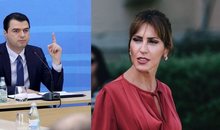

Assets worth 12 million euros seized from cocaine trafficking organization
2025-06-29 19:39:43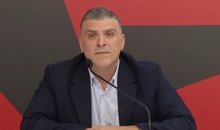
Fire in Durrës, Blushi: The state exists only on paper
2025-06-29 19:17:48

Fire endangers homes in Vlora, helicopter intervention begins
2025-06-29 18:27:51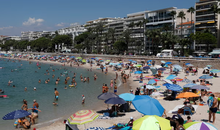
France implements smoking ban on beaches and parks
2025-06-29 18:02:08
England U-21 beat Germany to become European champions
2025-06-29 17:42:49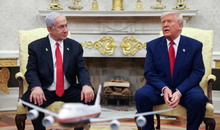
Trump criticizes Israeli prosecutors over Netanyahu's corruption trial
2025-06-29 17:08:10
Street market in Durrës engulfed in flames
2025-06-29 16:52:57

UN nuclear chief: Iran could resume uranium enrichment within months
2025-06-29 16:03:24
Albanian man dies after falling from cliff while climbing mountain in Italy
2025-06-29 15:52:01

Another accident with a single-track vehicle in Tirana, a car hits a 17-year-old
2025-06-29 15:07:15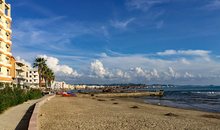
While bathing in the sea, a vacationer in Durrës dies
2025-06-29 14:54:01
Sentenced to life imprisonment, cell phone found in Laert Haxhiu's cell
2025-06-29 14:26:40
77 people detained in protest, Vučić warns of new arrests
2025-06-29 14:07:46